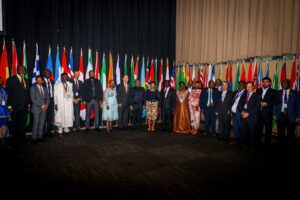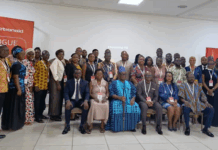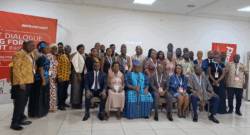The Minister for Transport, Kwaku Ofori Asiamah, has urged the International Maritime Organization (IMO) to provide full support to the players in the maritime industry to achieve a safer, more secure and greener industry.
According to him, of utmost importance to the shipping industry are more innovative measures designed by the IMO to ensure that global standards are implemented uniformly considering the fact that member states are at varying stages of socioeconomic development and are tackling varying developmental issues and priorities at varying times.
He argued that the implementation of the IMO technical cooperation activities, including the Integrated Technical Cooperation Programme (ITCP), designed to assist developing countries to improve their technical expertise in accordance with IMO’s global mandate to promote safe, secure, environmentally sound, efficient and sustainable shipping, is a very good one, the innovative measures would bring the member states to speed in reaching the global level that all are craving for.

“It is imperative that the IMO achieves harmonization by implementing global standards uniformly across the different jurisdictions. The shipping industry is dynamic, and the growing demand for measures towards ensuring a safer, more secure and greener industry is justified in every sense. No member should be left behind as that would not aid in achieving the global mandate of promoting safe, secure and greener shipping. It is essential that we all move along”, he noted.
Asiamah made this observation on Wednesday, October 12, 2022, when he was contributing to a panel discussion on the occasion of the International Maritime Organization World Maritime Day Parallel Event held at Durban ICC in Ethekwini, South Africa.
His comment was in reaction to what the IMO could do more to promote its Integrated Technical Cooperation Programme (ITCP), enhance its financial sustainability and also increase the representation of African countries.
The theme for this year’s World Maritime Day Parallel Event is “New Technologies for greener shipping” which calls for the global family of nations to take action on decarbonization of shipping and ports through the use of zero or low carbon technologies, fuels and infrastructure.

Speaking on the financial sustainability of the IMO, Asiamah urged the IMO to ensure the continued financial viability of the ITCP through core funding via the Technical Cooperation (TC) Fund and access to external and in-kind support.
He encouraged member states to honour their financial commitments to the Technical Cooperation Fund, and also provide financial and in-kind support to the ITCP through bi-lateral arrangements.
Further to that, he urged member states to co-operate with the IMO in the development and execution of resource mobilization campaigns.
The South Africa Minister of Transport, Fikile Mbalula, in his keynote address urged players in the maritime business to be proactive in coming up with mitigation measures in dealing with greenhouse gas emissions from ships which is projected to increase from the current 3% to 250% by 2050 because future demand of cargo would be carried by international ships.
He told the gathering that South Africa has expressed commitments in various multilateral platforms of its intent to decarbonize its economic sectors that are currently reliant on fossil fuel for energy.
“This is on the basis that there is a just transition which considers the socio-economic factors of the country and her people. We believe that the abundance of renewable energy potential can accelerate the development of greener technologies and alternative fuels in order to meet the demand of supplying bunker to ships at our ports”, he noted.










